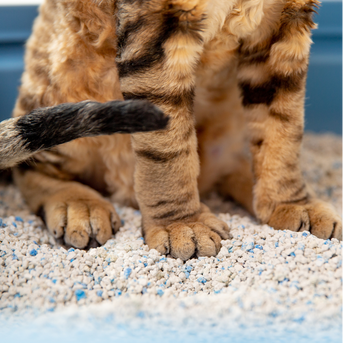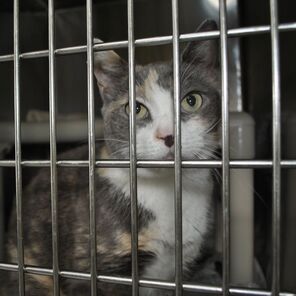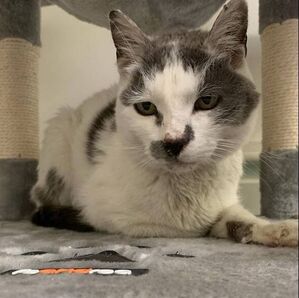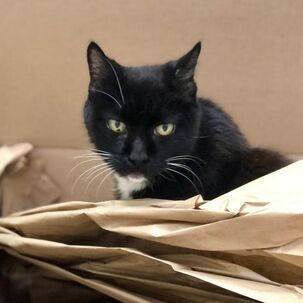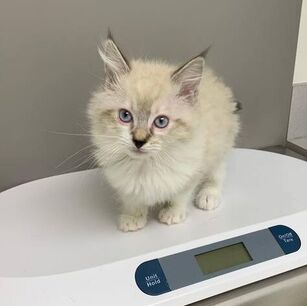Health Care for Your Cat
Of course, if your cat displays any signs of illness, you should take him/her to your veterinarian immediately; however, there are certain things you can do for your cat at home to maintain good health. One simple but commonly over-looked step towards keeping your cat healthy is by taking him/her for an annual check-up. Even if you have switched to a three-year vaccination cycle, cats are excellent at hiding signs of illness, so having your vet thoroughly exam your cat once a year can help detect illnesses that may otherwise go unnoticed. It is vital to identify a condition as early as possible so proper treatment can be given, rather than diagnosing an illness in an advanced stage.
Tips to maintain your cat's health:
Tips to maintain your cat's health:
- Grooming: Although cats do an excellent job of cleaning themselves, providing regular brushing and combing will help to get rid of any matted fur. Removing dead fur on a regular basis also helps prevent hairballs and any parasites, such as fleas, can be noticed more easily.
- Ears: Wipe the ears from time to time with a moistened tissue or cotton ball. If notice your cat scratching her ears a lot, she may have ear mites or an ear infection. Both of these can be easily treated with topical solutions provided by your vet, so make an appointment as soon as possible. If left untreated, an ear infection can result in a hematoma or swelling beneath the skin; which could require surgery.
- Teeth: Check her teeth and gums regularly, looking for tartar buildup, loose teeth, and red gums. If the tissue on the gums is red and inflamed, the cat could have gingivitis, an early sign of dental disease; and a dental checkup should be scheduled as soon as possible. Some cats will enjoy having their teeth cleaned, and there are several flavored toothpastes available just for cats!
- Nails: You should learn to clip your cat’s nails. Be careful, however, that you clip the tip only, and not the part that contains the nerves and blood vessels. Your veterinarian can show you how to properly clip your cat’s nails.
- Chin: Scabs or blackheads on the chin could mean feline acne. This is easily treated by your vet with several affordable products. Switching to all metal or ceramic food and water bowls can help to prevent this issue.
|
Vaccinating your cat is simple, affordable, and effective in keeping your cat from becoming very ill, either as a kitten or later in life.
|
|
By following a few simple steps, you can ensure your cat is comfortable and content in his/her golden years.
|
These are not easy decisions to make. Talk with your veterinarian, do your research, and know you are doing the best you can.
|
There are a number of options for financial aid available, as well as alternative steps you can take to help cover vet visits.
|
Common signs and symptoms of illness:
- You should monitor your cat’s intake of water and food, along with her use of the litter box, for any abnormal behavior.
- Sudden improper urination could mean the cat has a urinary tract infection. Any straining in the litter box means an urgent trip to the vet is required. Your cat could have a blockage, which could result in death, if not properly cared for.
- If you feel any lumps on the body, be mindful to talk to your vet. They could be nothing or they could mean an abscess or even cancer; so again, talk to your vet.
- Sneezing, coughing, and running nose can be signs of illness and should be evaluated by a veterinarian.
